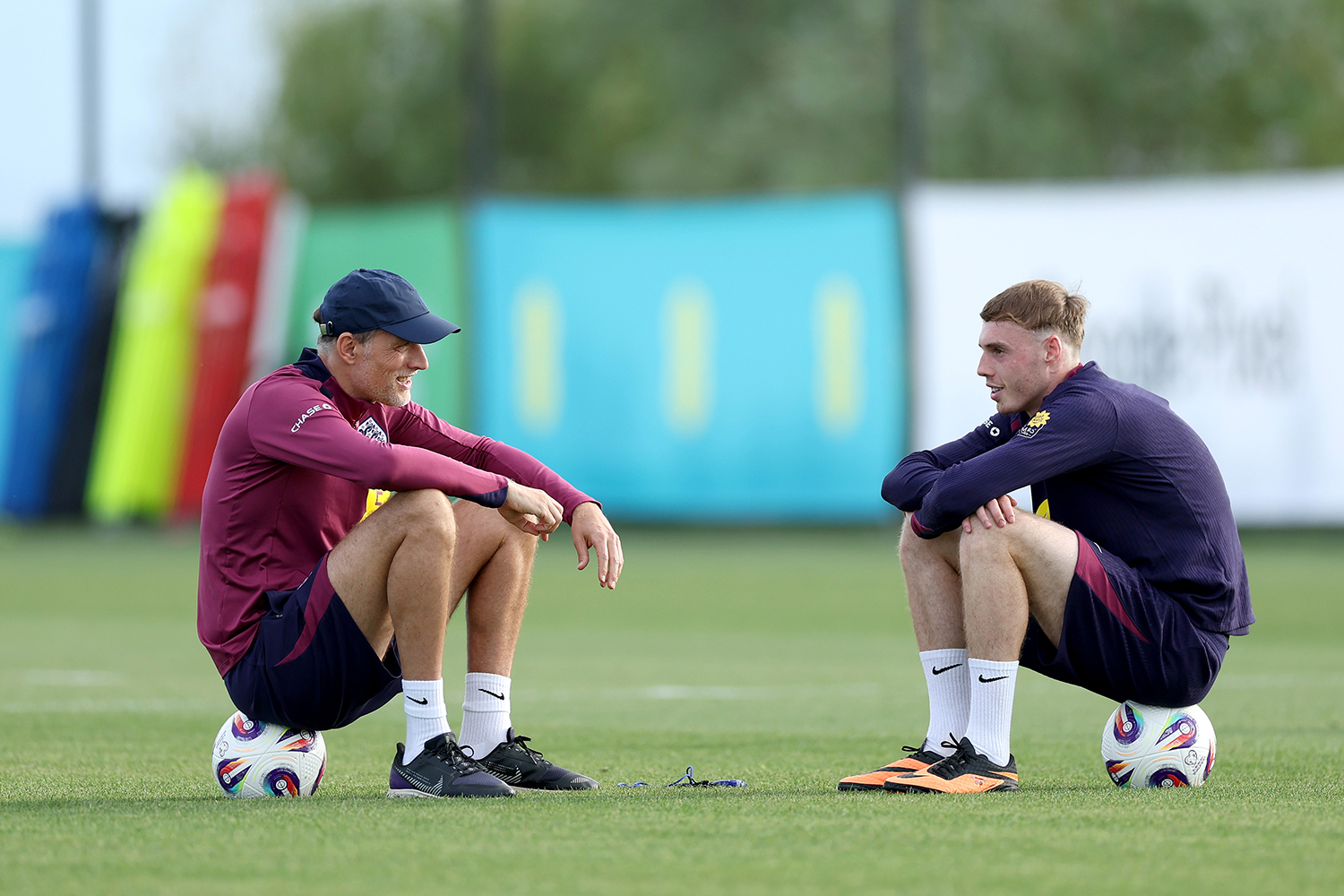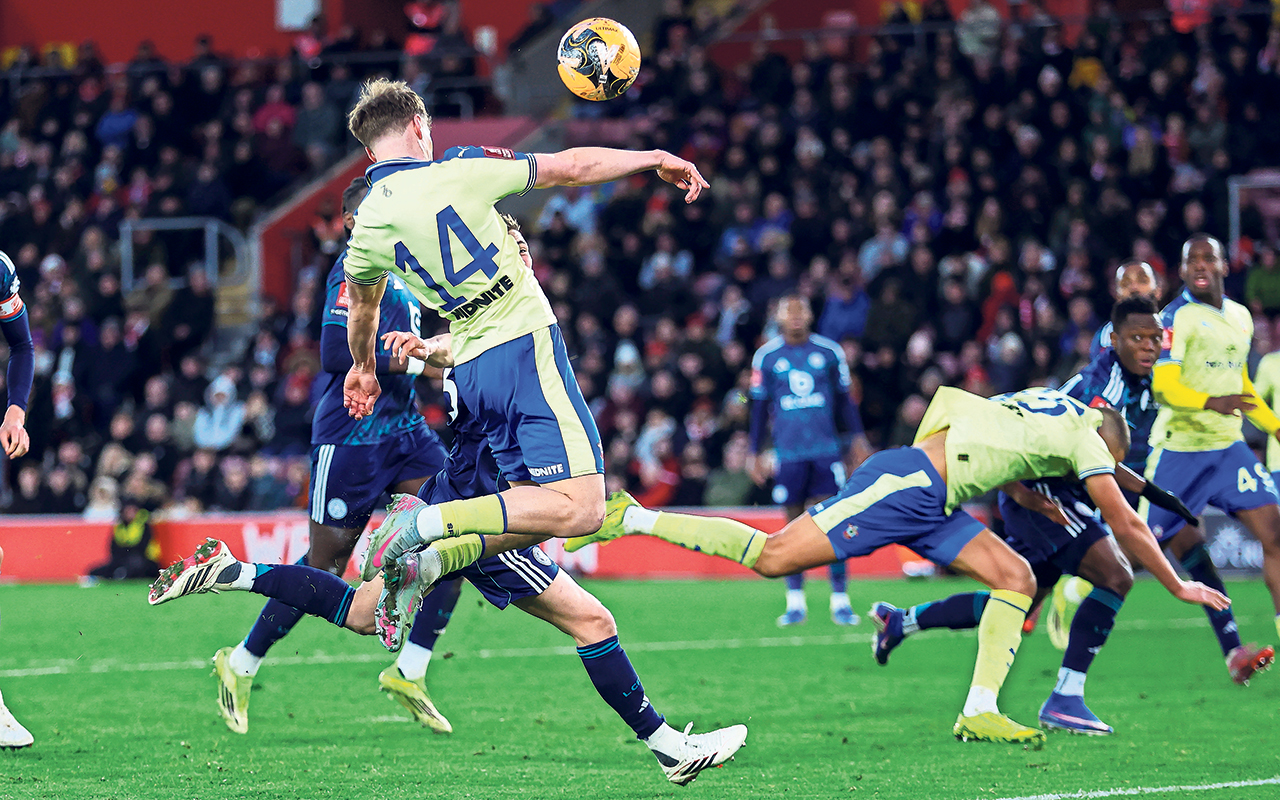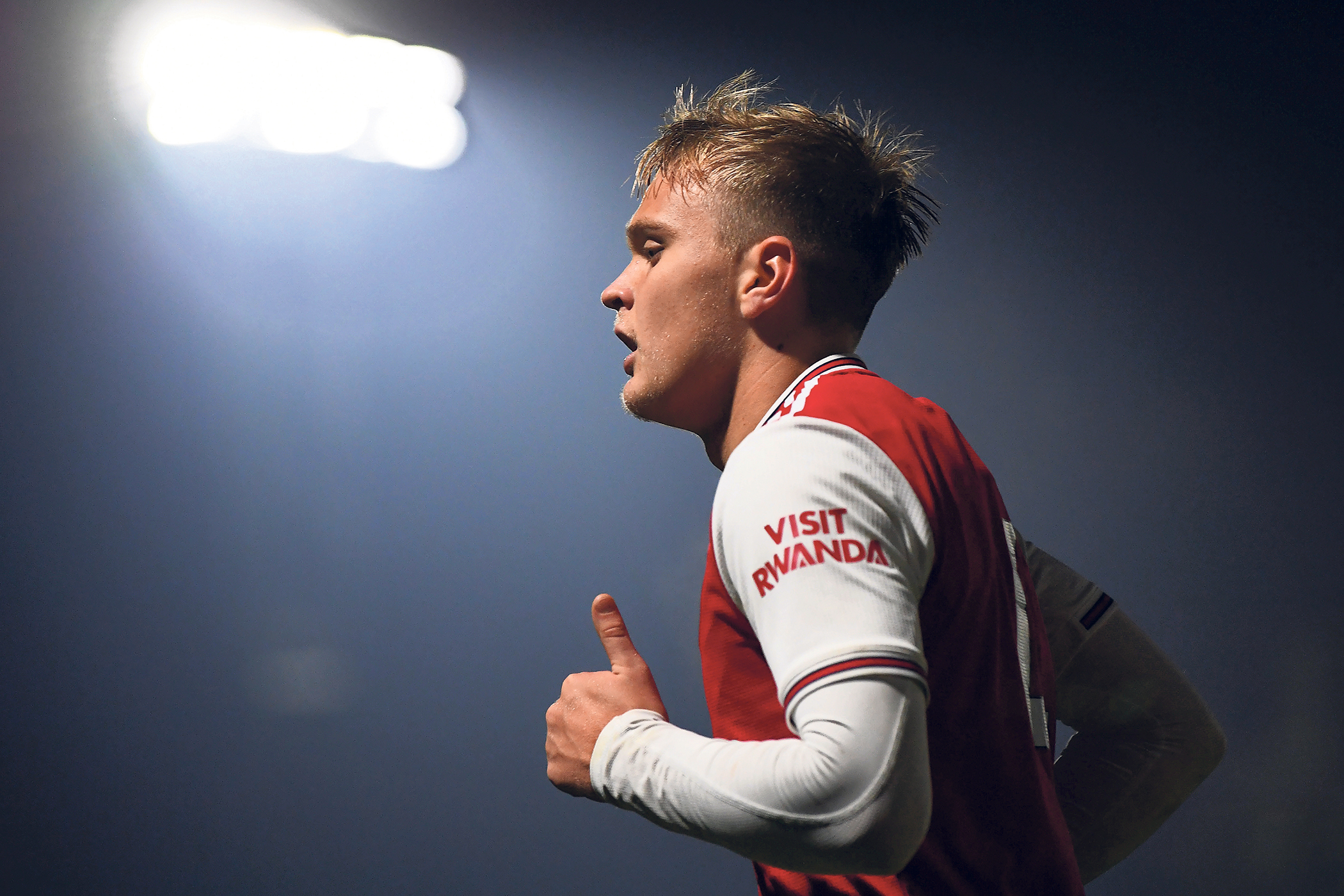To be granted an audience with Cole Palmer puts you in mind of those frenzied Sixties press conferences with a young Bob Dylan. As increasingly desperate journalists throw more outlandish questions at the protagonist, our enigmatic hero looks genuinely baffled by the fuss and deflects with monosyllabic answers. Yet the absence of verbosity only confirms cult status, for the charisma is effortless.
An example: a journalist with a Geordie accent is explaining how his Newcastle-supporting son has opted for a Palmer Chelsea shirt over the local favourites. It’s quite the compliment.
Palmer is puzzled.
“Why have you let him get a Chelsea shirt if you’re Newcastle?”
Because, he is told, Palmer has transcended tribalism with his aloof, unwitting cool.
“Oh, alright.”
Is that a nice feeling?
“Yeah, obviously when you see kids and that doing what they’re doing and saying what they're saying, it’s nice…”
At the UEFA Conference League final the Polish mascot assigned to Palmer did that Cold Palmer shivering celebration that he has popularised.
“Oh yeah, I seen that.”
Newsletters
Choose the newsletters you want to receive
View more
For information about how The Observer protects your data, read our Privacy Policy
“I guess that’s an indication of your global reach now?”
Silence.
“You’re not that fussed?”
Not a flicker.
“Obviously it’s nice to see it, but …” He trails off.
This is probably why kids get him. There’s nothing manufactured. Without knowing it – indeed, if he did know it, it would ruin it – he has the elixir Gen Alpha requires: authenticity.
“Kids love you. How does that make you feel?”
“Yeah, I don't mind….”
Here’s how football works: when you win a medal, especially a Champions League medal, you immediately add it to your Instagram profile even if you didn’t play a single minute on the pitch. Marketing people will tell you it all helps with global projection and ultimately the endorsements.
Palmer was on the bench for Manchester City’s Champions League win in 2023 but never got on.
“I always say that I don't really feel like a Champions League winner, if I’m being honest,” he says.
“It doesn't really mean anything to me. People say: ‘Oh no [you are].’ But I didn't really play and I weren't involved. Obviously I played in the group and stuff like that but it’s not the same is it?”
Has he kept the medal? He looks affronted.
“Yeah, obviously! I’ve not just thrown my medal away! I obviously have still got it but it’s not like I feel like I’ve won it.”
He is with England this week in Girona, Catalonia, a key component in the Thomas Tuchel reboot of a squad that took giant strides under Gareth Southgate but only to become perennial runners up.
It’s been a week of team bonding, the German manager obviously keen to build on the culture club Southgate created. As such they attended the Spanish Grand Prix at the nearby Circuit de Barcelona-Catalunya.
“How was it?”
“It was good. [Pause] I went to one in Abu Dhabi not long ago. But [pause] I fell asleep at that one. [Laughter] But this one I was awake.”
“Was Abu Dhabi a bad race?”
“Yeah”
“Or was it jetlag?”
“Don’t know what it was but…” He trails off. Again.
Southerners he deems “moody”.
“I think because it’s so busy [in London]. They’re all stressed. It must be a southern thing.”
There are only three living Englishmen who have scored in a men’s final for the national team: Sir Geoff Hurst, Luke Shaw and Palmer. The equaliser against Spain last summer was not only a superb finish, coming after an rare incisive move from the team. It was also pure Palmer in his ability to bend a game to his will.
“[I was thinking:] ‘Try to make an impact.’ It was the final, the last game of the tournament, we’re losing, I’ve not got nothing to lose. Well we do. It's probably the biggest game of our career, but you know what I mean?”
We do. Of course there was everything to lose. Yet Palmer players like there isn’t, like it’s just the game out back in Wythenshawe, the Manchester suburb where he grew up, before his mum calls him in for tea. That’s the charm of Palmer.
“At the time I didn’t really realise how big it was until the tournament finished. I looked back when I went home.”
I suggest that it might be his superpower, the fact that nothing phases him?
“Yeah I think so. Because I think an occasion like that [the Euro final], if you think about it, it might get the better of you. So I just try not to.”
It turns out it’s not just journalists who try to pep him up.
“My mum does. She says: ‘Just try to be a bit more involved, a bit more smiley and energetic and that.’ But my dad says: ‘He’s just like me. So just leave him alone.’ Me and my dad are too laid-back. I think.”
There is a famous picture of a bench-clearing brawl against Nottingham Forest with seemingly every player and backroom staff member fighting, with Palmer sat down a few yards away peacefully in his own world.
In search of the elusive verbose answer, we ask when was the last time he was really annoyed?
Long pause. “Um. I don’t know. Sorry. I don't know.”
“That’s informative in itself.”
Challenged, Palmer determines to find a moment.
“When I play PlayStation or summat. I’m not just like a robot, like you guys in the media think I am,” he protests. “[It’s not like] I don't show no emotion, obviously when there’s no cameras and on my phones to my mates and that and I’m doing stuff I enjoy…”
We explain that no one really sees him as a robot, that people are simply drawn to his exquisite talent and his extremely phlegmatic take on the whole hoopla which, in its own way, is tremendously attractive.
“Maybe,” he says. “I actually don't know. I’m just being myself.”
Photograph by Eddie Keogh/The FA/Getty Images


